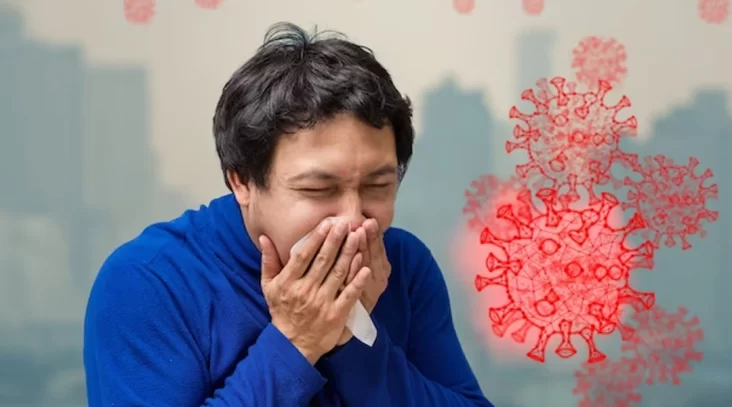Respiratory syncytial virus, or RSV, is a typical respiratory virus. It specifically targets the bronchiles, which are tiny airways in your lungs. One of the most typical reasons for paediatric illness is RSV. The virus typically infects youngsters by the age of two. Adults can also contract RSV.
Most healthy infants and adults who contract RSV will experience minor symptoms similar to a cold. Usually, the situation gets better on its own after a week.
A more severe form of RSV can affect premature newborns, infants under six months old, seniors over 65, as well as those with weakened immune systems, chronic lung diseases, or congenital heart conditions. Bronchitis and pneumonia from a severe RSV infection may need hospitalisation.
Key points about RSV include
- Symptoms: RSV infections can lead to a range of symptoms, including runny nose, cough, sneezing, fever, and sometimes wheezing. In severe cases, it can cause difficulty breathing and decreased oxygen levels.
- Transmission: RSV is highly contagious and spreads through direct contact with respiratory secretions, such as through coughing and sneezing. It can also survive on surfaces for several hours, making it easy to spread.
- Risk Groups: Infants, especially those under 6 months of age, are particularly susceptible to severe RSV infections. Premature infants, children with underlying health conditions, and older adults are also at an increased risk.
- Seasonal Patterns: RSV infections often occur in seasonal outbreaks, usually during the fall and winter months in temperate climates.
- Treatment: There is no specific antiviral treatment for RSV infections. Management mainly involves relieving symptoms, ensuring proper hydration, and providing supportive care. In severe cases, hospitalization may be required, especially for infants with breathing difficulties.
- Prevention: The best way to prevent RSV infections is through good hygiene practices, such as frequent handwashing, avoiding close contact with sick individuals, and keeping shared surfaces clean. In some cases, a medication called palivizumab may be administered to high-risk infants as a preventive measure.
For new parents with young children, RSV may be a frightening illness. If your kid is ill and exhibiting RSV symptoms, especially if they are younger than 6 months old, call your provider or go to the emergency department. To be sure your child’s symptoms aren’t dangerous, it’s vital to speak with your healthcare professional even if they are light. During the RSV season, try to stay away from public gatherings and large events where contagious infections are likely to be shared. By often washing your hands, requesting that those around your baby wash their hands, and sanitising commonly touched toys, objects, and surfaces, you can reduce the transmission of RSV.


One Comment
Pingback: Respiratory Syncytial Virus – Sujata Birla Hospital